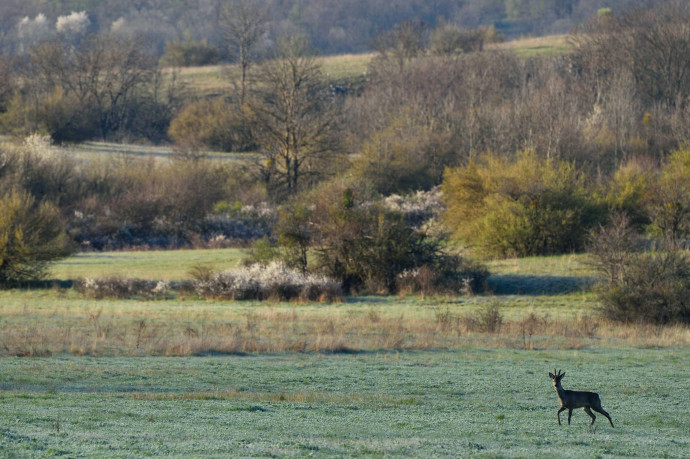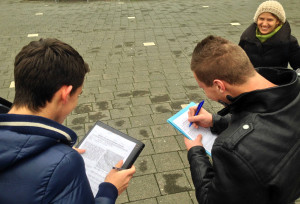More than 300 people living in the Velebit Mountains and coastal area were interviewed in November 2014, in order to obtain a clearer image of the local opinion on nature conservation, wildlife protection and development of nature-based tourism.

The survey demonstrated affirmative attitude towards nature conservation initiatives, protection of wildlife, wildlife comeback and existence of wild and natural areas without intensive human management. This pilot survey will serve as a benchmark for other rewilding areas that will carry out the survey in the coming future.
The main outcomes of the Rewilding Velebit attitude survey are:
- The large majority of people support the efforts to increase the number of endangered native and original wild animal species across Europe.
- Principally people do agree with the release of wildlife into this area to rise the wildlife numbers to more historical and natural levels.
- More than 60% of people are familiar with the ancestor of all cattle, the aurochs.
- There is very broad support for de-domestication of large grass-eaters from the original native species, allowing them to live independently and free in the wilderness.
- In general, people are not aware of the opportunities of providing investment loans to local businesses that make use of the economic values offered by wild nature and rewilding.
- The word „rewilding“ was rated as acceptable by most of the people
- People are not familiar with nature conservation organisations which are active in Velebit area, except National Parks and Nature Parks, nevertheless Rewilding Europe is recognised in the areas with most rewilding activities – the Tauros breeding programme, the wild horse breeding programme and in the area with active REC loan beneficiaries.
While people were generally supportive and positive about stronger protection of wild areas and wildlife within the area, they were less aware how nature could attract new investment, business, jobs and income to the region. The support for the development of responsible tourism in Velebit which is based on nature and wildlife was therefore almost equally divided in opinions. The demand for nature based tourism is evidently on an upward trajectory in Velebit area, with the potential of becoming a unique European haven for people to enjoy wildlife.
Working with municipalities strengthens the relationships with local people and enhance the area’s rewilding capacity. Rewilding Velebit efforts should therefore be targeted to raise the awareness of the local community to benefit from these opportunities.

This small-scale wildlife and wilderness survey was carried out at the end of November 2014 by Rewilding Velebit communication officer Mei Elderadži and volunteers Tania Lugomer Pomper and Tihomir Abraham. This personal approach extended the outcomes of the survey from the collection of raw data to an active promotion of the rewilding initiative.
The results of this first attitude survey are in general moderately positive and supportive of wildlife and natural processes. Lessons learned and guidelines derived from the results will be used for future activities in the Velebit area. The second survey is planned for near future to reflect these actions.
